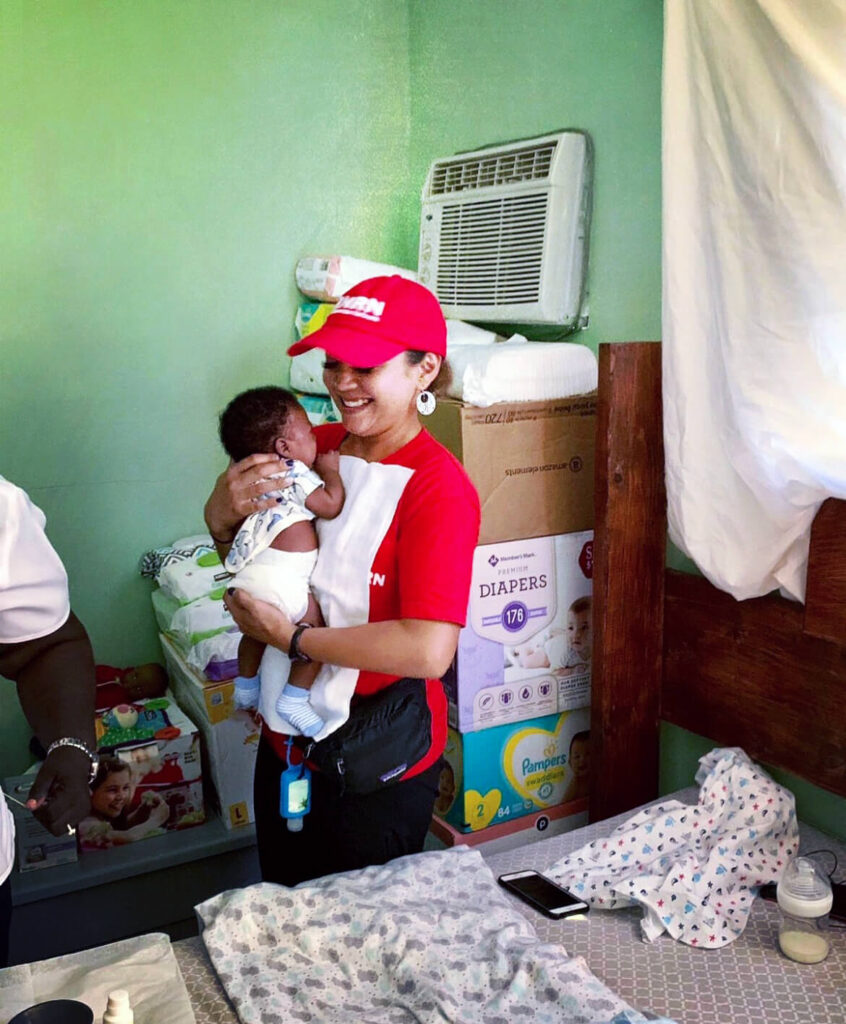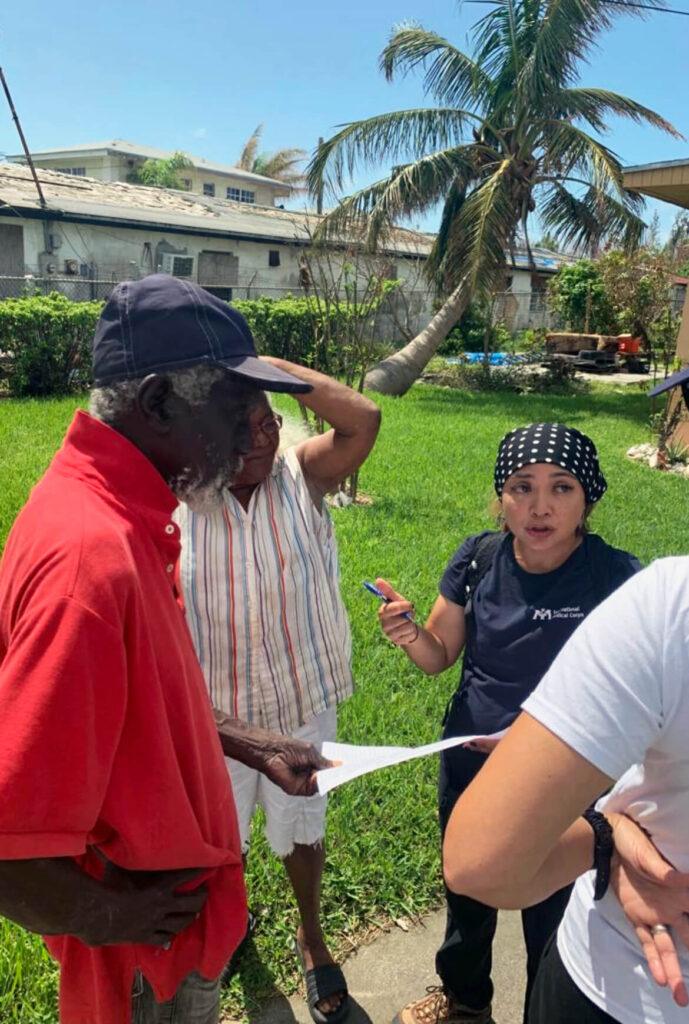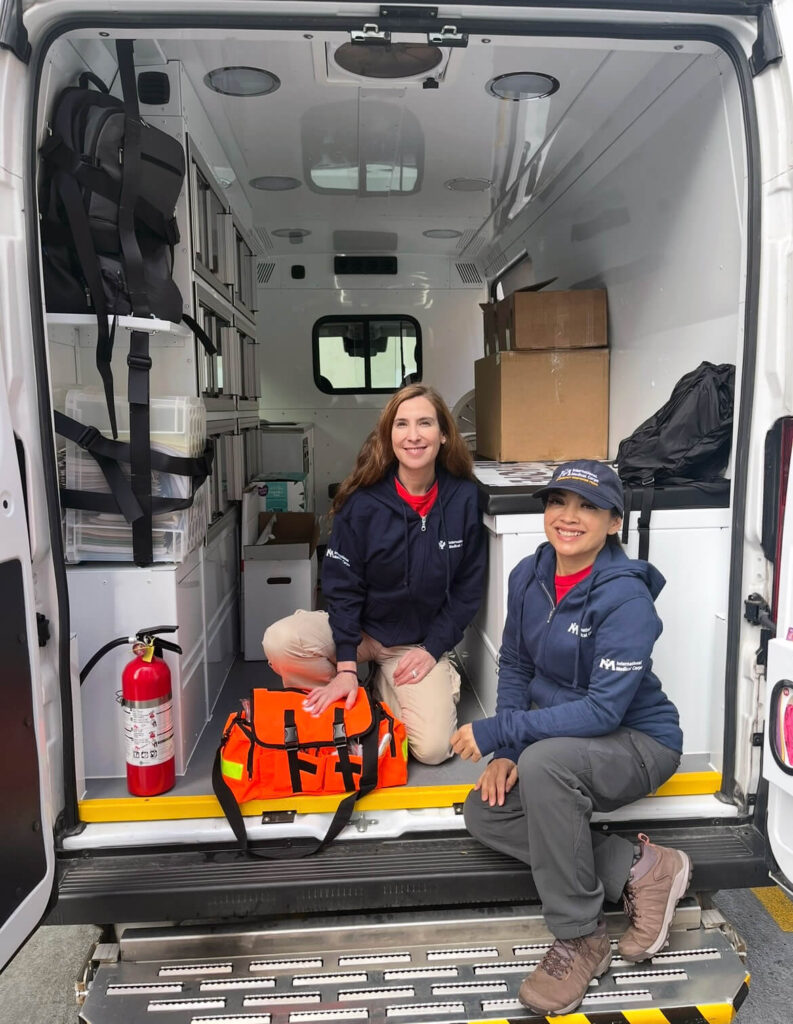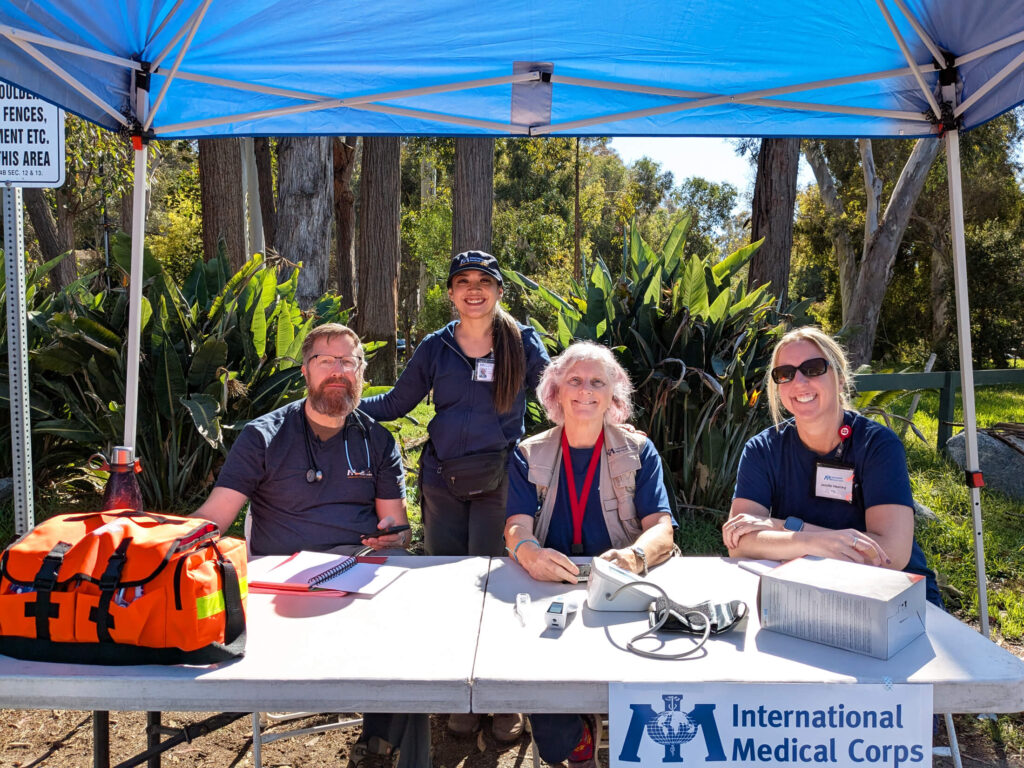As a longtime emergency care nurse, Mary-Jane (“MJ”) Perry has witnessed innumerable traumas. But it was a local incident—responding to a hit-and-run one block from her home in Sacramento, California—that “really hit home” and put her on the path to volunteering in responses to natural disasters around the world.
In January 2018, MJ found a 72-year-old grandmother and her 6-year-old grandson lying in the street down the block from her house after a car had run them over and fled the scene. As she waited with them for an ambulance, without the supplies and medications that she had become accustomed to in the emergency room, MJ says she had “never felt so helpless in her life.” The grandmother passed away and the 6-year-old boy went to the intensive-care unit—and to this day, MJ has no idea what happened to him. Then a mother of four, MJ found herself deeply shaken in the weeks that followed and realised that she “needed to get outside of her own head.” So when the RN Response Network (RNRN) put out a call for volunteer nurses to participate in a medical mission in Guatemala, MJ signed up immediately.


She soon found herself at the airport in Guatemala City—lacking Spanish-language skills, with her luggage lost in Mexico City—asking herself, “What the hell am I doing here?” But her experience in Guatemala turned out to be so rewarding that she has since volunteered on 10 more humanitarian responses. The trip helped her crystallise a new personal mission following the highly traumatising hit-and-run accident. “I couldn’t save those two,” says MJ. “But I determined that I’m going to save everyone else that I can.”
Resisting, Then Finding Her Calling
MJ is the daughter of Filipino parents who immigrated to Sacramento in the 1960s. She grew up in a rural farming community south of the city called Elk Grove, where she was one of only two Filipino students in town at the time. Having more of an affinity for the creative arts, MJ never imagined going into a science field. “Also, being Filipino, it’s like all your aunties and your cousins are going to be nurses,” says MJ. “So, and I had told myself growing up, ‘I’m never going to be a nurse.’”
But when she was pregnant with her first child, she found herself fascinated with midwifery care and decided to pursue nursing school. Once she did a rotation in the ER, she “fell in love with the controlled chaos.” She says emergency work fits her way of thinking, which is “not very linear and kind of all over the place.”
“You have to be ready for anything, expect that everything can happen and expect changes,” she explains. “That’s just a given.”

She began her career as a nurse in 2008 and spent 14 years in the ER before switching to primary care, then the post-anesthesia care unit. Today, as a married mother of five—with a surprise baby she had at the age of 46—MJ is entering the second year of her tenure at Kaiser South Sacramento Hospital, in the ambulatory surgery department. Both work and home life generate high levels of stress, and MJ emphasises the need for self-care to balance it all out. But it’s ultimately her volunteer work—which MJ calls “a healing process”—that has taught her to “not sweat the small stuff.”
“The volunteer work really helped me to focus more on patient care and on understanding that, even if a patient is coming at you in such a negative way, you really don’t know what is going on in their life,” says MJ. “As I’ve been able to hear the stories of different people affected by crises, it’s helped me learn how to not take anything personally.”
A Natural Fit
MJ has deployed with International Medical Corps four times so far: Hurricane Michael in Florida (2018), Hurricane Dorian in the Bahamas (2019), Hurricane Helene in North Carolina (2024) and the Los Angeles wildfires (2025). In the Bahamas, MJ’s team worked directly in health clinics, helping to relieve some of the local nurses who were working excessive hours while affected by the hurricane themselves. But in Florida, North Carolina and Los Angeles, MJ worked in shelters that were housing people displaced by these disasters.

North Carolina was an especially challenging deployment, as the shelter where MJ worked housed many people with mental health, drug and alcohol issues—at a time when one of MJ’s own kids was dealing with some mental health issues. “I felt for everyone, and felt really protective of them,” says MJ, “I tried to get everyone’s names and just be there to listen and let them know, ‘There’s no judgment here.’” Hearing so many difficult stories, she came to see that her work is not necessarily about trying to “save” anyone—instead, it’s about “being a presence to serve everyone in the way that they need to be served at that time, at that moment.”
This training came in handy in January 2025, when unprecedented wildfires raged across Los Angeles, destroying the homes of thousands of residents. Again, MJ saw the traumatic impact of loss and how losing one’s home can affect one’s identity. “There were a lot of residents who really needed mental health services,” says MJ. “And that’s one thing that International Medical Corps is really great at—providing mental health services in the immediate timeframe, when people need them most.”

MJ cites several reasons for why she continues to volunteer with International Medical Corps—an “incredible” organisation that she has “so much respect for.” She especially appreciates International Medical Corps’ speed, efficiency and professionalism, and how much she learns from the doctors and nurses with whom she works. She says that she also really likes the organisation’s values and humility. “They don’t step on anyone’s toes,” explains MJ. “They come in and ask, ‘How can we help?’ and fill gaps wherever they’re needed.”
When asked about her own strengths, MJ displays the same humility she admires in International Medical Corps. “You have to set your ego aside in emergency-response work,” says MJ, “Because if you don’t, you will not be able to work cohesively together.” She doesn’t see herself as a leader, but more as “a glue for everyone”—diplomatic and helpful to all, and sometimes even a mediator of conflict between strong personalities. A self-confessed introvert, MJ often comes off as a social butterfly, “always bouncing around” to serve as a resource for fellow volunteers and a facilitator between various agencies.
“You’re all working together in an emergency,” says MJ. “And I feel like it makes it more of a smooth-running machine if you can connect with everyone and connect everyone to each other.”
In addition to honing her medical skills and ability to stay calm amid crisis, volunteering has significantly expanded MJ’s sense of community. Working in different places with diverse cultures and traditions has helped her to see that “in the end, we’re all part of a larger community, via our humanity.” She makes sure to treat every patient like a family member, recognising that everyone is going through the same human emotions.
Through all the hardships and tragedies, MJ never fails to be touched by the resilience of humanity and communities affected by disaster. Everywhere she goes, she sees people coming together in their darkest hour to help others. “It’s been very inspiring,” says MJ. “In the end, we’re really here to look out for each other.”
You can support communities in need around the world by donating to International Medical Corps, or signing up to join our volunteer roster if you have the skills we need.
